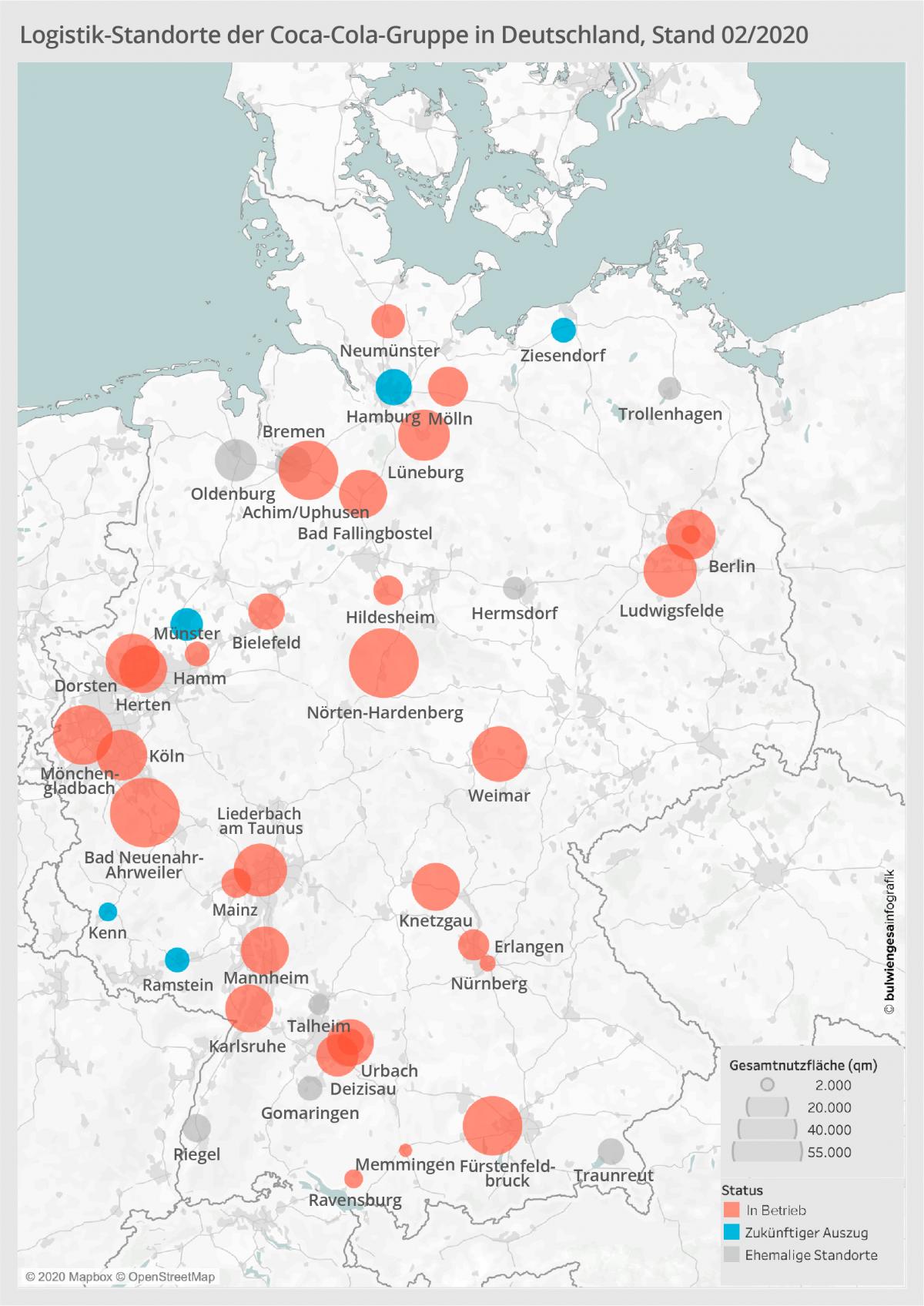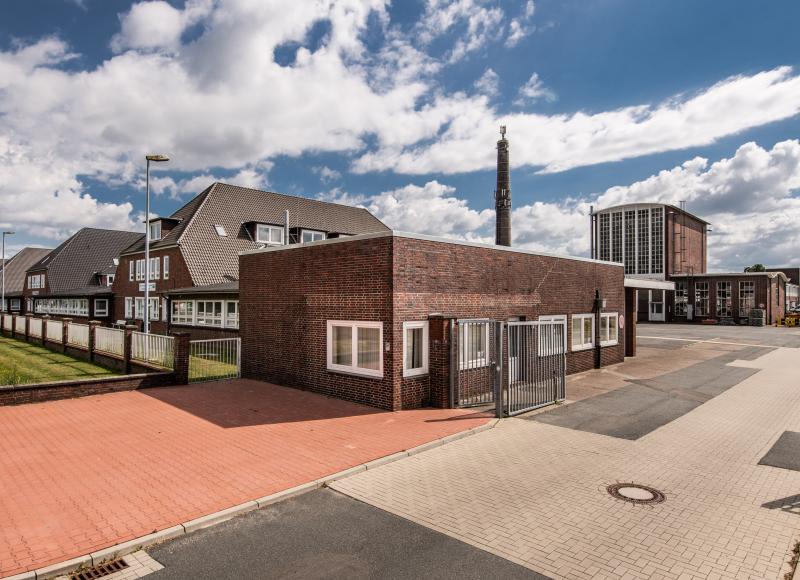Coca-Cola Vacates Logistics Facilities – How We can Assist Your Site-Finding Effort
Coca-Cola Vacates Logistics Facilities – How We can Assist Your Site-Finding Effort
Zoning land for logistics developments keeps getting harder in Germany. Which makes it all the more interesting to find out who is abandoning logistics sites and thereby releasing them for use by others. All it takes is a quick search in our real estate database.
Most insiders learned it from the press a few weeks ago: Coca-Cola is streamlining its logistics operations and closing five sites in Germany. The background being that more and more retail and gastronomy clients order ever larger shares of the product directly from one of the 16 bottling plants across the country. From there, the goods are either delivered to the clients’ central warehouses or are picked up by the clients directly at a production site. In some of the company’s logistics sites, the situation has reduced the turnover to the point where they can no longer be operated profitably.
For logistics operators, property developers and investors and ultimately occupiers, too, this opens up an opportunity – provided they hear about it early enough. This is precisely where our real estate database comes in. The real estate database of bulwiengesa keeps details on more than 21,000 properties from the commercial-industrial sector. Entire logistics networks of leading companies are on record there.
In addition to pure property information, the database also includes information on transaction activities and take-up. Whenever one player quits a certain site, it becomes an opportunity for another: If you know who occupies which warehouses in what location, you will be instantly aware of new options once a given company abandons a logistics warehouse. Being well informed enables you to capitalise on potential that would remain hidden to you without structurally processed data.
After all, plots are getting harder and harder to find. The lack of development land or new properties is just as great as the demand for it (which, by the way, was the focal issue of our latest survey on the subject, Logistics and Real Estate 2019). But zoning green-field plots is fraught with difficulties – municipalities seek to cut down on the consumption of land. At the same time, other segments of the real estate industry are competing for new-zoned development land. Moving into vacated existing buildings presents an opportunity in this kind of situation. The current example of Coca-Cola shows that the networks of logistics sites are in constant flux. One thing is safe to say: The warehouses vacated by Coca Cola will not be vacant for long.
Note: Are you interested in structured data? Having access to our RIWIS database also gives you the option to use the real estate database of bulwiengesa. We will gladly advise you in regard to your specific issues. By providing well-researched analyses, we will provide you with the bases for decisions that let you prosper in your line of business.
Contact persons: Tobias Kassner, Head of Division Logistics Real Estate and Unternehmensimmobilien, kassner [at] bulwiengesa.de and Patrik Völtz, Principal Investigator for Logistics Real Estate and Unternehmensimmobilien, voeltz [at] unternehmensimmobilien.de






